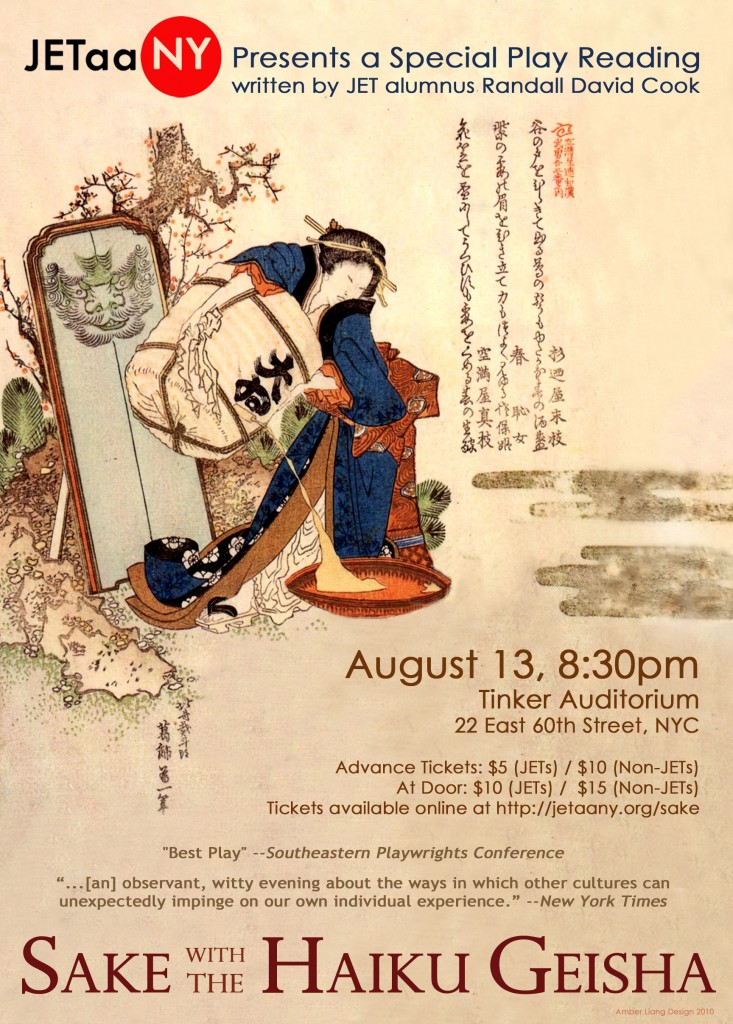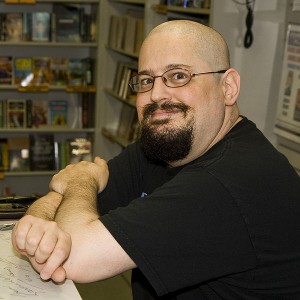Singer Hikaru Utada Announces ‘Artistic Activity’ Break
 By JQ Magazine’s Justin Tedaldi (CIR Kobe-shi, 2001-02) for Examiner.com. Visit his NY Japanese Culture page here to subscribe for free alerts on newly published stories.
By JQ Magazine’s Justin Tedaldi (CIR Kobe-shi, 2001-02) for Examiner.com. Visit his NY Japanese Culture page here to subscribe for free alerts on newly published stories.
Singer-songwriter Hikaru Utada is going from exodus to hiatus.
According to a message on her homepage from Aug. 9, Hikki (as she as known to her army of fans worldwide) has wrote that following the release of this fall’s Utada Hikaru Single Collection Vol. 2 album, she will take time off from her musical career effective next year.
The message finds the musician in a reflective mood, recalling the music video from her single “Automatic,” released 12 years ago when the singer was just 15 years old. She commented that since then, “part of my growth has stopped…as a person.” Hikki now intends to focus on “human activity” over “artistic activity” in the next year for an indeterminate period.
Read the full story here.
Event: “Sake With the Haiku Geisha” reading, August 13 (NYC)
JET ALUMNI ASSOCIATION OF NEW YORK (JETAA NY)
with support from the Consulate General of Japan in New York
Presents
A Special Play Reading of critically acclaimed Off Broadway Play
SAKE WITH THE HAIKU GEISHA
The JET Alumni Association of New York is pleased to present a limited one-night reading of the critically acclaimed play “Sake with the Haiku Geisha,” written by JET alumnus and playwright, Randall David Cook (Fukui-ken, 1991-93).
Date: Friday, August 13
Start time: 8:30 p.m.
Location: Tinker Auditorium (between Park & Madison Aves.) 22 E 60th St, New York, NY 10065, (212) 355-6100
Cost:
- $5 in advance ($10 at the door) for JET alumni
- $10 in advance ($15 at the door) for Friends of JET
CLICK HERE TO PURCHASE TICKETS ON-LINE VIA PAYPAL
“Sake with the Haiku Geisha” premiered Off-Broadway in 2006 and was based on the collective experiences of three JETs who were placed in Fukui-ken from 1991-1993: an American from South Carolina, a Canadian from Nova Scotia and an English woman from Devon. The structure of the play is inspired by the classic Noh play: an opening ceremony, five acts (each of which uses a different speaker and a spirit or ghost), and a closing ceremony. The show starts on at a farewell party for the visiting JETS, and first three acts are told from the perspective of the visiting JETs, and then the tables turn, and the final two acts are told from the perspective of two Japanese: the supervisor of the Canadian JET, and the geisha’s story, which closes out the play.
The first act, “Sushi and Scones” was a finalist in five major festivals in the USA and England, won the “Best Play” award at the Southeastern Playwrights Conference and was taped and broadcast by as a BBC radio play in late 2005. See a full review of the play in the New York Times.
This event is being organized in cooperation with the Consulate General of Japan in New York.
Kobayshi Cleared of Charges From Nathan’s Arrest
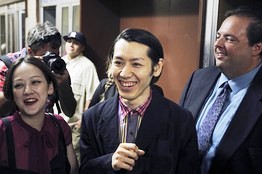
Competitive eater Takeru Kobayashi with interpreter/publicist Maggie James and attorney Mario D. Romano. (Associated Press)
The case, of which its misdemeanors also included charges of obstruction of governmental administration and disorderly conduct, ended with an adjournment in contemplation of dismissal (A.C.D.). This means that if Kobayashi, 32, stays out of trouble for six months, his record will be restored. This is good news for the Nagano native’s New York fans, since he moved to Gotham earlier this year after receiving a 0-1A work visa in February for his “extraordinary ability or achievement.” His visa status should remain unaffected by the court’s decision.
Read the full story here.
Tom Baker interviews “Airbender” cast
Tom Baker (Chiba-ken, 1989-91) is a staff writer for The Daily Yomiuri. As another example of JET ROI, he is one of at least four former JETS to have been on the newspaper’s staff in recent years. He usually writes for DYWeekend, the arts and leisure section. You can follow Tom’s blog at tokyotombaker.wordpress.com.
Recently he interviewed two members of the cast of “The Last Airbender” movie during their promotional visit to Tokyo, asking them for their views on the “racebending” controversy surrounding their film. He also covered an insect show now running at a Tokyo museum, reviewed the manga “Otomen,” and weighed in on a couple of other movies now playing in Japan. Here are some excerpts:
“Last Airbender”
 In the United States, some fans of the anime-style cartoon on which the movie is based have protested against the casting of Jackson Rathbone and Nicola Peltz, who are white, in roles the fans saw as Asian.
In the United States, some fans of the anime-style cartoon on which the movie is based have protested against the casting of Jackson Rathbone and Nicola Peltz, who are white, in roles the fans saw as Asian.
Asked to comment on that, Rathbone said: “I originally was a finalist for Prince Zuko [a Fire Nation role that went to Slumdog Millionaire star Dev Patel]. Almost a year later, I was brought back in for the character of Sokka…I think what they were really looking for was the qualities that people represent, not so much focusing on race…All these characters [in the cartoon] have so many different features, you can’t really say that they are one race…It’s a shame that people really focus on the race thing and they don’t understand that it’s a story for everyone.”
“And there are over 120 different types of people in the film,” Peltz added.
“In terms of a big-budget film, it’s the most ethnically diverse cast there’s ever been,” Rathbone agreed.
Read the rest of the interview here.
“Insects festival”
Open your window on a hot summer day and you may hear a sound that caught the ear of haiku poet Matsuo Basho in the 17th century: the voices of cicadas, seeping into the rocks. Of course, Japan today is a lot more urbanized than it was in Basho’s time, and cicadas are more likely to sing against a background of asphalt and cement. Yet year after year, the buzzing bugs never fail to show up, even in the heart of Tokyo.
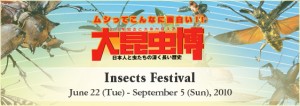 Visitors to Insects Festival, an exhibition now running at the Edo-Tokyo Museum in Ryogoku, Tokyo, are reminded of such persistence right away with a display of six-legged critters that live in three different Tokyo zones: mountains, fields and downtown areas.
Visitors to Insects Festival, an exhibition now running at the Edo-Tokyo Museum in Ryogoku, Tokyo, are reminded of such persistence right away with a display of six-legged critters that live in three different Tokyo zones: mountains, fields and downtown areas.
While city-dwellers often resent sharing space with the likes of cockroaches and ants, the emphasis of this show is on seasonal outdoor insects whose diverse shapes, bright colors and occasional songs actually enhance city life…
Read the rest of the article here, or visit the exhibition’s site here.
“Otomen”
 Anyone writing a graduate thesis on the presentation of gender in Japanese pop culture will find abundant material in the manga series Otomen. Readers looking for laughs will also find what they seek in Otomen, but rather less abundantly.
Anyone writing a graduate thesis on the presentation of gender in Japanese pop culture will find abundant material in the manga series Otomen. Readers looking for laughs will also find what they seek in Otomen, but rather less abundantly.
The main characters are a trio of high school students, with the focus on Asuka (a boy who has a name more common for girls), who is in love with Ryo (a girl who has a name more common for boys). Their would-be romance is complicated by the constant presence of their friend Juta, who tries to play cupid, but is more often a third wheel.
Asuka is the captain of the school kendo team, and is admired by everyone as a “real man.” But he is secretly an “otomen,” a boy who is into girly things, such as cute stuffed animals and delicate pastries. He is at least as skilled at cooking and sewing as he is at sports, but he keeps that side of himself hidden. Ryo is Asuka’s mirror image in that she has been raised by her socially inept father to follow in his footsteps as a martial arts champion, but she strives to put up a feminine front at school. Juta has a secret, too, as he is actually a best-selling manga artist who is using the couple as a model for his stories…
Also playing…
You can read Tom’s review of “Inception” here, and his review of “Zombieland” here.
JQ Magazine’s May/June 2010 “JET Author Issue” Out Now!
 It’s a veritable JET literary review in the new issue of JQ, featuring an interview with bestselling Learning to Bow author Bruce Feiler and three-time Stephen Leacock Medal winner Will Ferguson! Click here to view.
It’s a veritable JET literary review in the new issue of JQ, featuring an interview with bestselling Learning to Bow author Bruce Feiler and three-time Stephen Leacock Medal winner Will Ferguson! Click here to view.
Additional contents below. Thanks to JQ editor Justin Tedaldi (Kobe-shi CIR, 2001-02) for another solid issue. Contact Justin if you’d like to pitch or write a story for the next issue.
CONTENTS
- Page 3….From the Editor, New Country Reps
- Page 4….Nippon News Blotter / Wynne Memorial
- Page 5….JETAANY Election Recap
- Page 5….Gorgeous Entertainment by Anthony Waldman
- Page 6….Int’l Center of New York by Pamela Kavalam
- Page 6….Yoko Shioya of Japan Society by Lyle Sylvander
- Page 7….JETlog Feauturing Gail Cetnar Meadows
- Page 8….Bruce Feiler: The JQ Interview by Justin Tedaldi
- Page 9….JETAANY Society Page Photos
- Page 10…Nihonjin in NY: Nobuya Nagahama by Stacy Smith
- Page 11….Echostream Rocks the Anime Circuit by Earth Bennett
- Page 13.…Robataya Restaurant Review by Nancy Ikehara
- Page 13….The Niigata Sake Book by Yukari Sakamoto
- Page 14.…Will Ferguson: Canadian Cousin by Joshua Graubart
- Page 15….The Funny Page
Tom Baker interviews 2 movie directors, pans one manga
Tom Baker (Chiba-ken, 1989-91) is a staff writer for The Daily Yomiuri. He usually writes for DYWeekend, the paper’s arts and leisure section. You can follow Tom’s blog at tokyotombaker.wordpress.com.
He recently interviewed Shane Acker, director of the animated film “9” and Richard Kelly, who most recently directed “The Box,” a thriller starring Cameron Diaz. He also reviewed the manga “Hot Gimmick.” Here are some excerpts:
Shane Acker
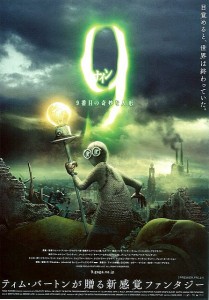 [The characters in the movie are all animated dolls with numbers instead of names.] A different personality aspect is dominant in each one. Rigid orthodoxy is represented by leader 1 (voiced by Christopher Plummer), creativity by inventor 2 (Martin Landau), bravery by warrior 7 (Jennifer Connelly) and so on. Elijah Wood does the voice of 9, the truth-seeker of the group, and John C. Reilly voices his timid friend, 5…
[The characters in the movie are all animated dolls with numbers instead of names.] A different personality aspect is dominant in each one. Rigid orthodoxy is represented by leader 1 (voiced by Christopher Plummer), creativity by inventor 2 (Martin Landau), bravery by warrior 7 (Jennifer Connelly) and so on. Elijah Wood does the voice of 9, the truth-seeker of the group, and John C. Reilly voices his timid friend, 5…
The most amusing character is 8 (Fred Tatasciore), who embodies sheer physicality. In one scene, he achieves a moment of strange bliss by stroking his head with a large magnet, an activity that Acker called “degaussing himself.”
“In film school, especially in the days of video, if you had a videotape and you wanted to just wipe it clean, there’s a degaussing machine, which is basically like a supermagnet, and you would wave the videotape over the degausser and it would just take off all the footage that’s on there,” Acker explained. “So that’s the kind of idea, he’s sort of wiping his memory banks. You realize why he’s so dumb.”
Richard Kelly
Imagine that a mysterious stranger has just handed you a wooden box with a red button on top. He explains, rather convincingly, that if you push the button two things will happen: Someone whom you don’t know will die, and you will receive a payment of 1 million dollars…
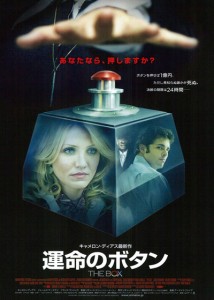 In writer-director Richard Kelly’s movie The Box, based on a short story by Richard Matheson, the stranger’s name is Arlington Steward (Frank Langella), and he is conducting a high-stakes social experiment by visiting the homes of middle-class American couples and offering them the choice of pushing the button or not.
In writer-director Richard Kelly’s movie The Box, based on a short story by Richard Matheson, the stranger’s name is Arlington Steward (Frank Langella), and he is conducting a high-stakes social experiment by visiting the homes of middle-class American couples and offering them the choice of pushing the button or not.
“Tonally this movie crosses a lot of genres,” Kelly, who previously wrote and directed Donnie Darko (2001) and Southland Tales (2006), told The Daily Yomiuri in a recent phone interview. “It’s a science fiction film, it’s a domestic melodrama, it’s a suspense film, there’s elements of horror in it, and there’s also some black comedy inherent…The conceit of pushing this button on this contraption and someone you don’t know dying is very mischievous. Anyone who would build this contraption and make this offer is smirking when they do it. And Matheson was smirking, I’m sure, when he wrote this short story.”
…[The story is set in the 1970s because] the mysterious stranger is a character type whose day has passed, according to Kelly. “When I set out to write this screenplay, I initially was trying to figure out how to make it work present-day, but when you introduce modern technology and the Internet, social networking sites, Google maps, satellite maps, reality TV, just our media-saturated world that we live in…there is no such thing as a real stranger anymore. Everyone can be found on the Internet. You can find anyone’s house, you can go onto a satellite map with a 360-degree view.”
“Hot Gimmick”
 [In this manga, a high school girl’s seriously unhealthy relationships with her would-be boyfriends is presented as perfectly normal.]
[In this manga, a high school girl’s seriously unhealthy relationships with her would-be boyfriends is presented as perfectly normal.]
For example, the day after one of her suitors is unable to reach her by phone (for reasons that are no one’s fault), he slaps her across the face so hard that bystanders rush to offer first aid. But Hatsumi chases after him to make the following speech, which he receives in stony silence: “I’m sorry. For being so clueless. For…never being able to get your calls…I’m so sorry. I’m really sorry. For not understanding how you feel about me. I’m sorry.”
Later, when one of the boys proposes to her, she thinks, “Maybe if we got married, he’d finally be nice to me.”
She seems unaware of some basic principles of healthy human interaction, such as this simple standard: If a friend arranges for you to be gang-raped, that person is not really your friend.
Tom Baker interviews sci-fi notables Charles Stross and Sharlto Copley
Tom Baker (Chiba-ken, 1989-91) is a staff writer for The Daily Yomiuri. He usually writes for DYWeekend, the paper’s arts and leisure section. You can follow Tom’s blog at tokyotombaker.wordpress.com.
Recently he interviewed two notable figures from the world of science fiction: novelist Charles Stross, the Hugo Award-winning (and Seiun Award-nominated) author best known for his “Merchant Princes” series, and actor Sharlto Copley, who plays the lead role in the movie “District 9.” Stross in now in Japan to attend the newly launched Hal-Con science fiction convention in Saitama, while Copley was there to promote his film, which just opened in the country. Here are some excerpts:
CHARLES STROSS:
Stross has also written “hard” science fiction, such as his novels Saturn’s Children and Accelerando, which imagine technologically advanced futures in deep detail. Readers of those books may notice a sprinkling of Japanese vocabulary, such as “bishojo,” “chibi” and “kawaii.”
“There were particular reasons for wanting to use it [Japanese vocabulary],” Stross explained. “One issue is globalization of culture. Japan is unusual in that it’s one of the few societies other than North-American-stroke-Anglosphere ones successfully exporting its culture globally. You will find Hello Kitty in shops in the U.K., you will find her in Germany, you will find her all over the world. There’s far less in the way of, for example, German cultural exports. So if you’re going to portray a near future, it is one that is going to be Japanese-influenced to a greater or lesser extent.”
Saturn’s Children is about a robot created to serve humans who must get on with her life in a universe where humans have gone extinct. She’s one of a long line of nearly identical “sibs” who sometimes share their memory chips with each other, blurring distinctions between the individual and the group…
Read the rest of Tom’s interview with Stross here. (And read his review of Saturn’s Children here.)
SHARLTO COPLEY:
As Wikus [Copley’s character] works for a heavily armed private company called MNU, another big issue in District 9 is the movement of military power into the hands of corporations, a phenomenon that has been prominent in recent world news due to the involvement of U.S. contractors such as Blackwater in the war in Iraq. In the movie, MNU is portrayed as a menace, which made Copley’s comment on the topic a bit of a surprise.
“That started with Neill’s fascination with [a South African military contractor called] Executive Outcomes,” Copley said. “That’s actually the start of modern-day privatization, when the South African government changed, and you had incredibly high-level professional soldiers…that had nowhere to go. They weren’t going to work for the new government, and they formed a private military company that went and sorted out various conflicts in Africa–and did amazingly well, actually. It was very controversial, but you couldn’t argue that when 50 guys went in and solved a problem that the United Nations couldn’t with 5,000, that there was definitely something to be said for that.”
Read the rest of Tom’s interview with Copley here.
Roland Kelts to speak at “Anime Boston” – Sat., April 3
Hey JETAA New England! Join Roland Kelts (Osaka-shi, 1998-99), author of Japanamerica, at Anime Boston this coming weekend for a Japanamerica talk and book-signing session Saturday, April 3, @ 1:30 p.m. in the Hynes Convention Center in downtown Boston.
JET alum David Boling to run for Congress
 Thanks to JET alum Harlan Rosacker of Washington, D.C. for passing along this information:
Thanks to JET alum Harlan Rosacker of Washington, D.C. for passing along this information:
JET alum David Boling has announced his candidacy for the 2nd Congressional seat in Arkansas. You can see David’s website at: www.bolingforcongress.com and you can follow his blog at: www.bolingforcongress.com/blog.html.
Harland adds:
“We have known David since the mid-1990s. Our association grew as a result our having lived in Japan ourselves from 1969 to 1976. Our son Andrew (born in Tokyo) was a JET in Kanagawa-ken from 1996 to 1998.”
Here are a few JET-relevant snippets from David’s bio:
- David Boling, 45, is a fourth-generation Arkansan. He is a 10-year veteran of the U.S. Department of Justice; a one-time lawyer at the Mitchell Williams law firm in Little Rock; and, until last month, the Chief of Staff to Congressman Vic Snyder (D, AR-2).
- Boling is married to former Fuji Television reporter Mine Sasaguri; he and his wife are the parents of two children, Christopher (7) and Ellen (5).
- Fulfilling a desire to learn more about the Japanese educational system, David took a one-year break from law school, 1988-1989, to teach English to students in Fujishiro. He was later selected for a competitive Rotary scholarship which he used to master the 1800 character Japanese language, visit Pine Bluff’s Sister City, Iwai and, most importantly, gain an understanding of the Japanese legal system and trade between Japan and the United States – specifically, about trade between Japan and Arkansas.
- David passed the Arkansas Bar Exam in 1993 and then completed a Masters in Law (LL.M) at Columbia University School of Law in 1994, where he focused on international and Japanese law.
- In 1995, David joined the US Department of Justice Antitrust Division as a lawyer. He worked there for 10 years, spanning both the Clinton and Bush Administrations. As they increasingly litigated cases against Japanese firms, David’s background was a strong asset to the Justice Department, but he also worked to investigate alleged illegal monopoly behavior in the concert ticketing business and on criminal investigations to crack down on international price-fixing cartels, which steal from American consumers. He helped prosecute a Japanese executive and Japanese company for obstruction of justice in two separate antitrust investigations. In 1999, Janet Reno signed an international antitrust agreement between Japan and the US to further open the Japanese market and improve antitrust enforcement that Boling helped to negotiate.
- Boling was selected for a Mike Mansfield Fellowship at Justice, during which he worked in the Japanese Justice Ministry and other government agencies, deepening his understanding of their legal system.
David-san, ganbatte kudasai!
Tom Baker reviews “Sherlock Holmes,” interviews Jon Foo
Tom Baker (Chiba-ken, 1989-91) is a staff writer for The Daily Yomiuri. He usually writes for DYWeekend, the paper’s arts and leisure section. You can follow Tom’s blog at tokyotombaker.wordpress.com.
Last Friday he had two movie articles in the paper: a review of “Sherlock Holmes,” which you can read here, and an interview with martial artist Jon Foo, who stars in a new movie based on the “Tekken” series of video games. Here is an excerpt:
“My mom, she does judo, and my dad did karate, so I learned a lot from them growing up,” Foo told The Daily Yomiuri in an interview in Tokyo last week. “My mom used to do throws; tomoenage was her favorite. She’d pick me up, kick me in the air and I landed on the bed. And I’d do conditioning. And then I moved on to kung fu, tae kwon do, Muay Thai. Just take the best from each and mix it [considering] whatever suits my body, and I’ll take that and I’ll use that to perform to my best.”
Foo, 27, has had supporting roles in action movies in several countries, but Tekken puts him in the lead for the first time.
He plays Jin Kazama, a young man who makes a living as a fleet-footed courier in a postapocalyptic world ruled by corporations, one of which is Tekken (a name that translates as “iron fist”)…
…Tekken’s top boss, Heihachi Mishima, is an elderly man–but a mean fighter–whose shiny bald dome is framed by an erect ruff of gray hair that looks like a set of tail fins from a 1950s Cadillac. The hair and makeup people did a hilarious job of replicating this look on actor Cary-Hiroyuki Tagawa, but they were more restrained when it came to just hinting at Jin’s swept-back hairstyle with Foo. We’re probably meant to laugh at some parts of this film, but Jin has to hold the audience’s sympathy.
Read the rest of the article here.
Roland Kelts column in Daily Yomiuri: Censorship of manga – What’s ok?
Roland Kelts (Osaka-shi, 1998-99), author of Japanamerica, has published his latest SOFT POWER/HARD TRUTHS column for The Daily Yomiuri–this one about last month’s sentencing of American Chris Handley for possession of ‘obscene manga’ in Iowa–and this month’s proposal by the Tokyo Government to censor ‘virtual porn’ (read: manga and anime) in Japan.
Is this another example of ‘gaitsu‘–Japan being affected by foreign pressure?
Column is here: http://www.yomiuri.co.jp/dy/features/arts/20100319TDY11101.htm
Roland Kelts to give Tokyo Otaku talk at Temple U. – Thurs March 18 (Tokyo)
 More details here: http://japanamerica.blogspot.com/2010/03/tokyo-otaku-talk-temple-this-thursday.html
More details here: http://japanamerica.blogspot.com/2010/03/tokyo-otaku-talk-temple-this-thursday.html
Tom Baker reviews “I Love You Phillip Morris”
Tom Baker (Chiba-ken, 1989-91) is a staff writer for The Daily Yomiuri. A big part of his beat is the Pop Culture page, which covers manga, anime and video games. You can follow Tom’s blog at tokyotombaker.wordpress.com.
He also writes movie reviews. Here is an excerpt from a recent review of “I Love You Phillip Morris,” in which Jim Carrey and Ewan McGregor play Steven and Phillip, the lead characters in a gay romantic-comedy/prison-break film that is based on a true story. It opens March 17 in Britain and April 30 in the United States, but is already playing in Japan.
McGregor’s sweet and naive Phillip is totally believable. Harmlessly meek and far too trusting, yet somehow uttering the lion’s share of the laugh lines, he makes you want to protect him, which is also how Steven feels. “You only see the good in people,” marvels Steven, whose own outlook is far more cynical.
Carrey, who does appear in good movies now and then, is not always as believable in his role, but this is appropriate since he plays a chronic fake who is always trying on new identities and tells lies to everyone he meets. Late in the movie, when Steven tries to prove his love by revealing his true self to Phillip, he can’t really do it.
Steven is a criminal who went to prison because he belonged there. But his scams are amusing because his wealthy victims are entertainingly depicted (fairly or not) as crude, pompous fools. And his various prison escapes are amazing. In one, he uses felt-tip markers and toilet water to dye his prison uniform green, enabling him to walk right out in the guise of a visiting doctor…
Read the rest of the article here.
Sake World e-Newsletter by John Gauntner (March 2010)
The March 2010 issue of the Sake World E-mail Newsletter by JET alum and leading sake expert John Gauntner (aka “The Sake Guy”) is now available online.
Roland Kelts to speak at Kinokuniya (NY) on March 6 as part of “Ponyo Day”
Roland Kelts (Osaka-shi, 1998-99), author of Japanamerica, will be speaking at Kinokuniya in NYC as part of “Ponyo Day.” The event is this Saturday from 1:00 pm to 5:00 pm, and Roland will be speaking at 4:00 pm. (This appearance hot on the heels of his Atlanta book signing on March 4!)

